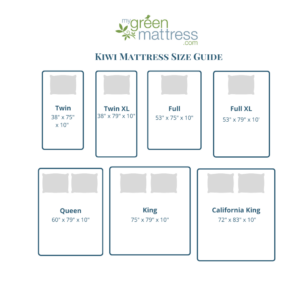Sleep and weight loss go together just like drinking more water and greater skin elasticity. Sleep is an important part of our overall health, but it can also have an effect on our weight.
If you’ve ever been on a weight loss journey and wondered what you’re missing, you may be overlooking your sleep. Numerous characteristics of your sleep influence how easy or difficult it is for your body to shed unwanted pounds.
In this blog post, we’ll look at what the relationship is between sleep and weight loss, the effects of sleep deprivation and sleep apnea on weight loss, how to get better sleep for weight loss, diet and exercise for weight loss, sleep and weight loss tips, common myths about sleep and weight loss, sleep and weight loss research, and sleep and weight loss supplements.
What Is the Sleep and Weight Loss Connection?
The effect of poor or interrupted sleep on the body’s metabolism and its potential to cause weight gain or diabetes has been studied for two decades and counting. In a 2005 report in the Journal of Applied Physiology, the authors explain:
Sleep loss and sleep disturbances could contribute to the development of insulin resistance and Type 2 diabetes either directly by having a deleterious effect on components of glucose regulation or indirectly via a dysregulation of appetite, leading to weight gain and obesity, a major risk factor for insulin resistance and diabetes.
While it’s fun to think that you can sleep yourself to your ideal weight, reality shows us it’s not that simple. However, science still paints a pretty clear picture sometimes, and the results are clear when looking at the weight/sleep connection/
Being less-rested leads to having a lower resting metabolic rate (RMR), which has a direct impact on managing your weight. While you may have heard that having inadequate sleep can lead to lowered willpower and increased snacking, there are also physiological reasons why sleep is so critical to metabolism.
Researchers have found that just a few days of inadequate sleep can be detrimental to your body’s ability to process insulin, which is vital to turning food into energy.
Many other studies including those currently being conducted are finding numerous inextricable links between sleep and weight loss. People who get enough sleep tend to have a higher body mass index (BMI) than those who don’t. Studies have also found that those who sleep less than seven hours per night are more likely to be overweight or obese.
The relationship between sleep and weight loss is complex and it involves both physical and mental factors. When you don’t get enough sleep, it can lead to an increase in stress hormones like cortisol, which can increase appetite and make it harder to feel ready for rest. When you don’t get enough sleep, your ability to make sound decisions and resist cravings is impaired.

The Effects of Sleep Deprivation On Weight Loss
Sleep deprivation has a number of negative effects on weight loss. When we don’t get enough sleep, our bodies produce more ghrelin, the hormone that stimulates appetite, and less leptin, the hormone that suppresses appetite.
This can prompt increased caloric intake and fewer total calories burned. Cortisol is also produced in higher numbers when we don’t get proper rest, which causes the body to store more fat, making it harder to lose weight.
Sleep deprivation also makes it harder to form sound decisions. When we’re tired, we’re more likely to reach for junk food like candy bars and potato chips (further promoting poor food intake decisions). Without enough sound sleep, we’re more likely to be too tired to exercise as well, which can further impede weight loss.
All of this creates a vicious cycle wherein the lack of sleep prompts ill-advised lifestyle decisions and the resulting lack of energy (or too much at the wrong time) makes it that much harder to get good sleep. Continue reading this post to discover simple actions you can take to break this harmful cycle and develop healthier habits.
Sleep Apnea and Weight Loss
Sleep apnea is a sleeping disorder that is characterized by unexpected pauses in breathing while sleeping. It often has several negative effects on weight loss, including an increase in cravings, a decrease in metabolism, and an increase in stress hormones.
Sleep apnea can also lead to an increase in blood pressure and cause higher risk of developing diabetes. Sleep apnea commonly causes daytime fatigue, which can lead to decreased exercise and increased calorie intake.
On average, individuals who have sleep apnea and were obese lost about 10% of their body weight on average when treated. This is a significant health improvement for several factors that produces lasting change.
If you’re experiencing sleep apnea or symptoms you believe are associated, it’s best to speak with a medical professional immediately. Without diagnosis and treatment, sleep apnea can develop and potentially become life-threatening.
Thankfully, there are several ways you can mitigate or even eliminate sleep apnea at home. You shouldn’t start any kind of treatment plan without speaking with a doctor first, though. Going at it alone may mean you don’t have the support systems necessary to resolve it, and you may end up worsening it without the right sleep setup or equipment.
How to Get Better Sleep for Weight Loss
It’s clear by now that improving your quality of sleep actually helps you lose weight. Here are five highly actionable tips that can help you learn how to get better sleep:
- Establish a consistent sleep schedule. Going to bed and waking up at the same time every day will help your body establish a healthy sleep-wake cycle. The more naturally you wake up each day, the more easily you’ll be able to fall asleep at the right time.
- Avoid stimulants. Caffeine and other stimulants can interfere with sleep, so it’s best to avoid them anytime after 12pm and especially right before bed. Otherwise you’ll be trying to force yourself to sleep, which is not fun at all.
- Exercise regularly. Regular exercise can help you get better sleep by making you appropriately tired in the evening. This prepares your body and mind to fall asleep for necessary recovery time.
- Avoid electronics before bed: The blue light from electronics can interfere with your body’s production of melatonin, the hormone that induces sleep at night. Putting away screen-based devices or at least using blue-blocking glasses promotes a normal circadian rhythm to your mind.
- Get into a relaxing nighttime routine. Taking a hot bath, reading a book, or doing some light stretching relaxes your body and prepares your mind for a good night’s sleep. It’s also a great way to put the cares of the day to the side until you can face them again tomorrow.
Diet and Exercise for Weight Loss
Diet and exercise are two other important components of any weight loss program. Eating a balanced diet that is rich in fruits, vegetables, lean proteins, and whole grains promotes satiety and provides your body with the macro- and micronutrients it needs.
Regular exercise is the other major component needed to maximize weight loss during sleep. Aim to get at least 30 minutes of vigorous physical activity each day, or one hour every few days. This can include walking, running, biking, swimming, or any other form of physical activity that you enjoy.

Common Myths About Sleep and Weight Loss (Plus the Real Answers)
Losing weight and optimizing your sleep schedule is not easy. It takes commitment and focus over a long enough period of time.
The fact that so many sleep and weight loss myths spread far and wide online doesn’t help anything. We decided to compile some of the most common sleep and weight loss myths to clear them up. Here’s the list we came up with:
- If you get little to no sleep one night, you can just catch up the next night. Missing out on sleep for even one night will usually be felt the next day, and getting extra sleep on the weekends won’t make up for poor sleep during the week. Your body needs regular, high quality sleep every night to operate properly.
- You only need five hours of sleep per night (or less). Sleep researchers and doctors have long since established the importance of seven to eight hours of sleep per night for the majority of adults.
- You can train your body to need less sleep. While creative individuals will find ways to “biohack” all sorts of things about the human body, sleep is incredibly difficult to hack. Even if you do find tips that help you get by on less sleep, it won’t last. The human body is not meant for “sleep hacking” and eventually you’ll crash completely, possibly in a location where you can’t sleep.
- Getting more sleep is always better. Contrary to popular belief, getting more sleep than you need is harmful more often than not. Extra sleep increases your risk of contracting chronic health conditions, including heart disease, diabetes, stroke, and obesity.
- Naps are a substitute for nighttime sleep. Naps can be helpful for boosting energy, but they can’t replace a full night’s sleep. The world’s leading sleep specialists recommend the right amount of sleep based on your stage in life.
- You only need to get seven or eight hours of sleep, the rest takes care of itself. While sleep duration is essential, it’s also critical to get quality sleep. Researchers have found that deep sleep is the most important stage and without it, your body won’t grow or repair itself sufficiently.
- Being able to fall asleep anywhere means you’re a good sleeper. If you can fall asleep anywhere, it’s not a sign that your body does well with sleep. It usually indicates there’s one or more sleep disorders like insomnia, narcolepsy, or sleep apnea. If you’re falling asleep on a regular basis at times or locations that aren’t regular bedtime, speak with a medical professional right away.
Sleeping and Weight Loss Research
Over the last two decades in particular, hundreds of studies have been published about the relationship between sleep and weight loss. These studies have found that getting enough and the right kind of sleep fosters weight loss by reducing cravings, increasing metabolism, and ensuring stress hormones are only produced when they need to be.
Additionally, research has shown that sleep-deprived individuals are more often overweight people than those who are getting enough sleep. This type of issue is exacerbated by the time of day you go to sleep, with much later in the evening being associated with weight gain.
Sleep and Weight Loss Supplements
There are a number of supplements that can support you on your journey of better sleep and weight loss. These include melatonin, magnesium, and 5-HTP:
- Melatonin regulates your sleep-wake cycle and makes it easier to fall asleep. Most melatonin-containing supplements are non-addicting and available over the counter (OTC).
- Magnesium can help reduce stress and relax your muscles, which can help you sleep better. Magnesium also stimulates your brain’s GABA receptors which are responsible for handling REM sleep each night.
- 5-hydroxytryptophan, or 5-HTP, can boost your serotonin levels, which can make it easier to stick to a diet. This makes it easier to be satiated after dinner each night and resist unhealthy cravings.
These supplements can be helpful for weight loss, but it’s important to remember that they are no substitute for an existing healthy diet and ongoing, challenging exercise. We recommend talking with your doctor before taking any supplements, as some of them can interact with existing medications or have unintended side effects.
Getting enough sleep is an important part of any weight loss program. The two complement each other effortlessly when you’re committed to improving both of them.
Looking for the perfect products that can help you shed pounds without any extra effort on your part? That’s where our certified organic mattresses come in. Shop our organic hybrid mattresses now for the best sleep you never knew you were missing.











